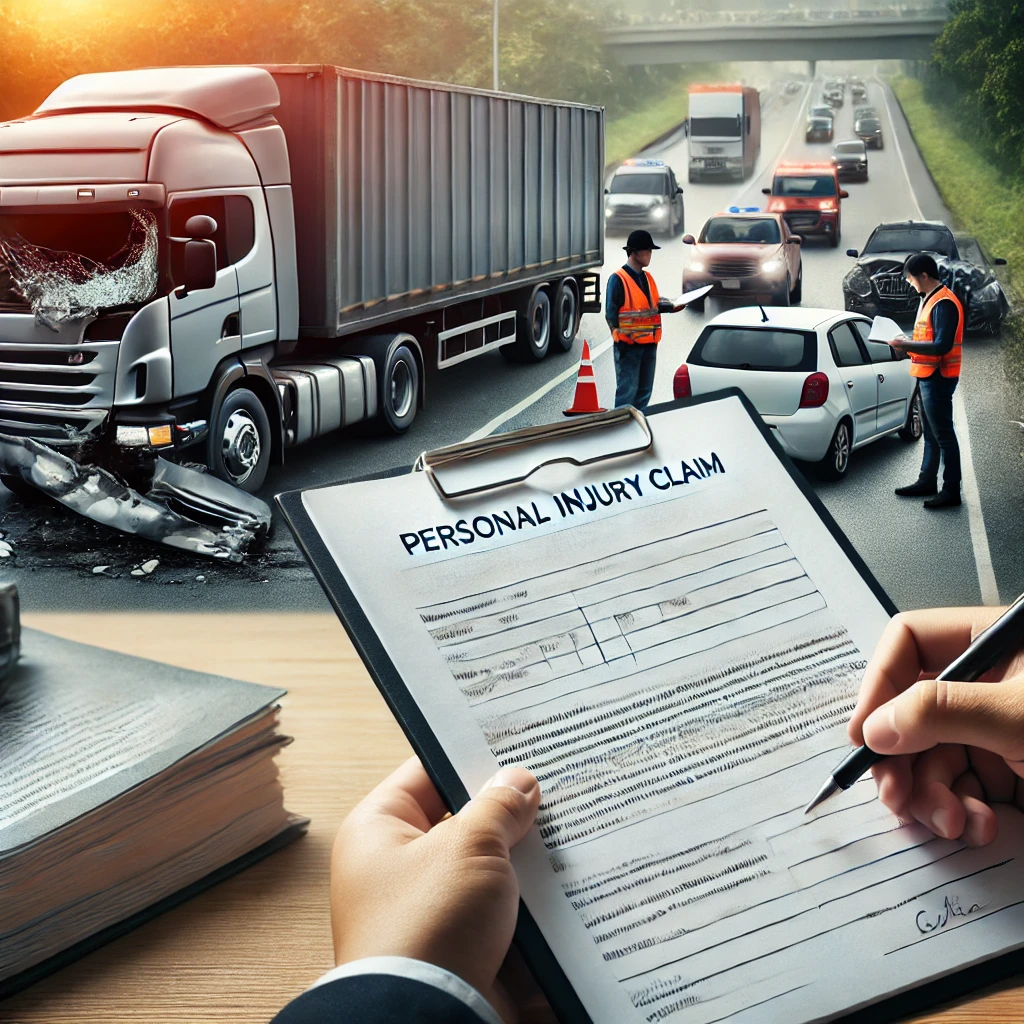Truck accidents often result in serious injuries due to the size and weight disparity between commercial trucks and passenger vehicles. If you’ve been injured in a truck accident, you may be entitled to compensation for medical expenses, lost wages, and pain and suffering. Filing a personal injury claim can help you recover these costs, but the process can be complex, especially with the involvement of multiple parties such as the truck driver, trucking company, and their insurers. This article explains the steps involved in filing a personal injury claim after a truck accident to ensure you receive the compensation you deserve.
1. Seek Medical Attention Immediately
The first and most important step after a truck accident is to seek immediate medical attention. Even if your injuries appear minor, it’s critical to get a thorough evaluation, as some injuries, such as internal bleeding or whiplash, may not be immediately apparent. Your medical records will serve as vital evidence in your personal injury claim, documenting the severity of your injuries and the treatments you require.
2. Gather Evidence from the Accident Scene
If you are physically able, gather as much evidence as possible from the accident scene. This evidence will help establish liability and support your personal injury claim. Important evidence includes:
- Photos and videos: Take pictures or videos of the accident scene, including vehicle damage, road conditions, skid marks, and any visible injuries.
- Contact information: Obtain contact details from the truck driver, other involved drivers, witnesses, and the truck’s company.
- Police report: Contact the police and request an official accident report, which will contain valuable information about the incident and the responding officer’s assessment of fault.
3. Determine Liability in a Truck Accident
Truck accidents often involve more than just the truck driver. Potentially liable parties include:
- The truck driver: If the driver was negligent, distracted, fatigued, or driving under the influence, they may be held liable for the accident.
- The trucking company: Trucking companies may be responsible for the actions of their drivers, especially if they violated safety regulations or failed to provide proper training.
- Truck manufacturers or maintenance companies: If faulty parts or improper maintenance contributed to the accident, the company responsible for the truck’s upkeep may also be held liable.
A thorough investigation, often conducted by your attorney, is necessary to determine who is at fault and what parties should be included in your personal injury claim.
4. Consult an Attorney Specializing in Truck Accidents
Truck accident cases are more complex than typical car accident cases due to federal regulations governing the trucking industry and the involvement of multiple parties. It’s highly recommended to consult a personal injury attorney who specializes in truck accidents. An attorney will help:
- Gather evidence to support your claim
- Negotiate with insurance companies on your behalf
- Ensure that all responsible parties are held accountable
- Maximize the compensation you receive for your injuries and losses
Most personal injury attorneys offer free consultations and work on a contingency fee basis, meaning they only get paid if you win your case.
5. File a Personal Injury Claim
After consulting with your attorney, the next step is to file a formal personal injury claim with the at-fault party’s insurance company. This claim will outline your injuries, the damages you are seeking, and evidence proving the other party’s negligence. Damages in a personal injury claim typically include:
- Medical expenses: Costs for emergency care, hospital stays, surgeries, rehabilitation, medication, and ongoing treatments.
- Lost wages: Compensation for any income you’ve lost due to your inability to work while recovering from your injuries.
- Pain and suffering: Non-economic damages to compensate for the physical pain, emotional distress, and reduced quality of life caused by the accident.
6. Negotiate a Settlement
Once your personal injury claim is filed, the insurance company will review the evidence and may offer a settlement. It’s important to consult with your attorney before accepting any settlement offer, as initial offers are often lower than what you may be entitled to. Your attorney will negotiate on your behalf to reach a fair settlement that covers all your medical costs, lost income, and other damages.
7. Consider Litigation if Necessary
If a fair settlement cannot be reached, your attorney may advise you to file a lawsuit and take the case to court. Litigation may be necessary if the insurance company denies your claim, disputes liability, or offers an inadequate settlement. In court, your attorney will present evidence to prove negligence and argue for full compensation for your injuries.
Conclusion
Filing a personal injury claim after a truck accident can be a complicated process, but it’s crucial for securing the compensation you need to recover from your injuries. By gathering evidence, consulting an attorney, and navigating the insurance process, you can hold the responsible parties accountable and receive the damages you deserve. Whether through negotiation or litigation, an experienced attorney will ensure that your rights are protected throughout the claims process.
Disclaimer: The content of this article is for informational purposes only and does not constitute legal advice. The information provided is based on general research and is not intended to be a substitute for professional legal advice or consultation with a qualified attorney. Always consult with a lawyer regarding your specific legal situation.
Related Articles
- Understanding Compensation in a Truck Accident Claim
- The Role of an Attorney in Filing a Truck Accident Claim
- Negotiating with Insurance Companies: What You Need to Know
- Common Mistakes to Avoid When Filing a Truck Accident Claim
- How Long Does it Take to Settle a Truck Accident Claim?
More from This Category
- How to File a Property Damage Claim After a Truck Accident
- Filing a Personal Injury Claim After a Truck Accident
- What to Do if Your Claim is Denied
- Understanding the Insurance Claims Process
- Steps to Filing a Truck Accident Claim
